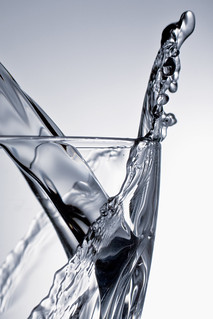 A new study demonstrates that if you gargle sugar water, without even drinking it, this can temporarily help you maintain your self control. Previous studies had suggested the already counterintuitive idea that drinking sugar water could help with self control, but the new study demonstrates that the energy from sugar has nothing to do with it.
A new study demonstrates that if you gargle sugar water, without even drinking it, this can temporarily help you maintain your self control. Previous studies had suggested the already counterintuitive idea that drinking sugar water could help with self control, but the new study demonstrates that the energy from sugar has nothing to do with it.
The study was led by psychology professor Leonard Martin from the University of Georgia. In the experiment, 51 students were asked to perform two tasks.
The first task was meant to basically drain the students’ mental energy by forcing them to read through a statistics textbook and cross out the letter “e” when they came across it. Previous experiments have shown that this task reduces self control.
The second task was designed to measure self control. While performing the task, half of the students were asked to gargle lemonade with sugar added. The other half were asked to gargle lemonade with Splenda, an artificial sweetener, added.
For the second task, the students looked at words that flashed across the screen. The words spelled out a color, but the actual color of the letters was different. The students had to identify the actual color of the word, resisting the temptation to simply read what the word said.
The students who swished their mouths with sugar water answered the questions much faster.
If it wasn’t the calories from the sugar that was having the effect, what was it? A similar experiment conducted by Daniel Molden, of Northwestern University, suggests that it is actually because sugar activates receptors in the mouth that turn on the motivational areas of the brain.
These areas of the brain, which play a role in addiction and goal seeking behavior, in turn allow you to focus on meeting a specific goal. Motivational thinking allows you to resist your first impulses and inhibit desires unrelated to your immediate goal.
Martin’s experiment was meant to replicate the results of Molden’s in a different framework, giving further weight to the idea.
The work is also inspired by the fact that merely gargling sugar water improves performance in exercise, according to research at the University of Birmingham. Bicyclists did better when they gargled sugar water than when they gargled artificially sweetened water.
Brain scans after the cycling experiment also showed that the anterior cingulate cortex and striatum were activated when people gargled sugar water, even without drinking it.
The anterior cingulate cortex sits in your forehead, buried underneath the first layer, called the frontal gyrus. It plays parts in decision making, empathy, understanding emotion, error detection, awareness, and anticipating rewards.
The striatum sits close to the center of the brain, and it’s best known for planning movement. It also becomes active when a reward is anticipated, or when an unexpected or intense stimulus happens.
Putting all of this together, it looks like gargling sugar water puts us in a reward-anticipating state of mind, which also activates parts of the brain involved in detecting errors, awareness, setting goals, and inhibiting distractions.
The study also offers more reason to be skeptical of prior theories that suggest goal oriented tasks, like crossing out “e”s in a textbook, literally drain energy by using up our body’s supply of glucose. Such tasks genuinely do drain our ability to set new goals, but this apparently has nothing to do with our body’s actual store of energy.
It’s unlikely that gargling sugar water is any way to improve your long-term self-control. But this study does suggest that when motivational thinking is in place, you are also likely to have self control.
Related:
Why We Do What We Do: Understanding Self-Motivation
Cliff Pickover Brings Medical Science to Life With “The Medical Book”
